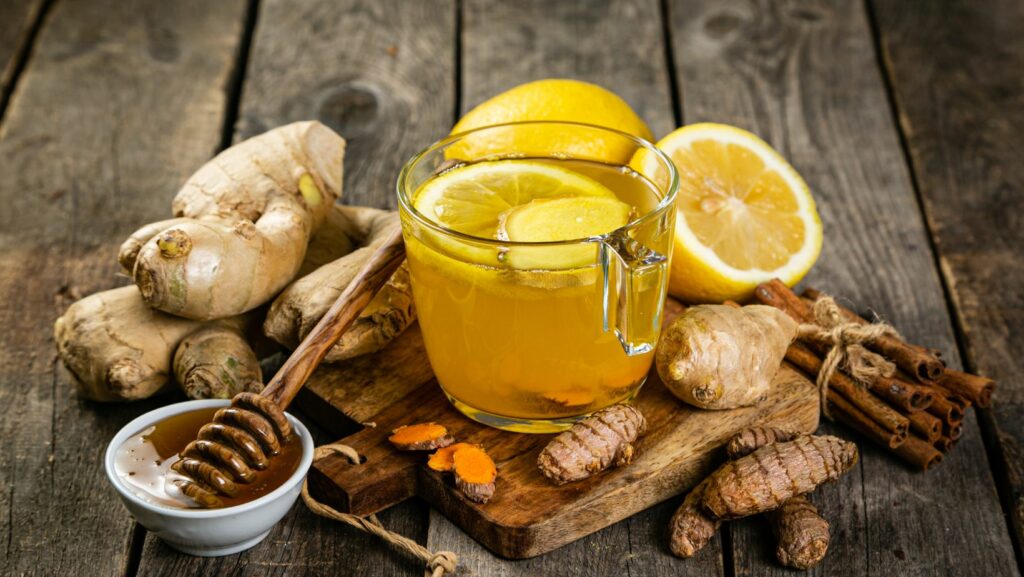In today’s fast-paced world, bronchitis is a common respiratory condition that many people face, often leading them to seek natural alternatives for relief. Herbal remedies have gained popularity as a gentle and effective way to alleviate symptoms, offering a holistic approach to healing. With a blend of ancient wisdom and modern understanding, these remedies provide a soothing touch to inflamed airways.
While conventional treatments focus on symptomatic relief, herbal remedies target the root causes, helping to reduce inflammation and boost the immune system. From the calming properties of chamomile to the anti-inflammatory effects of ginger, nature offers a rich pharmacy of options. For those looking to explore natural solutions, understanding the benefits and applications of these herbs can be a game-changer in managing bronchitis.
Understanding Bronchitis
 Bronchitis involves inflammation of the bronchial tubes, causing coughing and mucus production. It occurs in two primary forms: acute and chronic. Acute bronchitis often results from viral infections and presents short-term discomfort lasting weeks. Conversely, chronic bronchitis persists over months or years, often linked to smoking or prolonged exposure to irritants.
Bronchitis involves inflammation of the bronchial tubes, causing coughing and mucus production. It occurs in two primary forms: acute and chronic. Acute bronchitis often results from viral infections and presents short-term discomfort lasting weeks. Conversely, chronic bronchitis persists over months or years, often linked to smoking or prolonged exposure to irritants.
Multiple factors trigger bronchitis, including viruses, bacteria, and environmental pollutants. Smoking significantly increases risk, contributing to bronchial inflammation. Symptoms include persistent cough, mucus production, and chest discomfort.
Proper diagnosis usually involves a physical examination and may include lung function tests or chest X-rays to rule out pneumonia. Identifying whether the condition is acute or chronic aids in determining suitable treatments.
Herbal Remedies For Bronchitis
Herbal remedies offer a natural approach to managing bronchitis, presenting benefits such as reducing inflammation and relieving respiratory discomfort.
Ginger
 Ginger possesses strong anti-inflammatory properties. It’s often used to alleviate coughing and throat irritation in bronchitis sufferers. Consuming ginger tea or adding ginger root to warm water can help soothe the bronchial tubes. Studies show its gingerol compounds reduce inflammation in the respiratory system.
Ginger possesses strong anti-inflammatory properties. It’s often used to alleviate coughing and throat irritation in bronchitis sufferers. Consuming ginger tea or adding ginger root to warm water can help soothe the bronchial tubes. Studies show its gingerol compounds reduce inflammation in the respiratory system.
Eucalyptus
Eucalyptus is known for its expectorant qualities. The oil extracted from its leaves is used in steam inhalation to clear mucus and ease breathing. Eucalyptus oil acts by relaxing the muscles of the airways. Its cineole content effectively reduces cough frequency and improves lung function.
Peppermint
Peppermint contains menthol, a natural decongestant. It aids in opening airways and relieving congestion associated with bronchitis. Inhaling peppermint oil vapor helps loosen mucus and provides a soothing effect on irritated throats. Its antimicrobial properties also combat respiratory infections.
Licorice Root
Licorice root soothes and reduces inflammation in the throat and bronchial passages. It’s often prepared as a tea to alleviate symptoms of bronchitis such as cough and sore throat. Glycyrrhizin, a component of licorice root, contributes to its effectiveness by boosting the immune system while calming irritated tissues.
How To Use Herbal Remedies Safely
Using herbal remedies for bronchitis effectively requires attention to proper usage and awareness of potential side effects. Ensuring safety maximizes their therapeutic benefits.
Dosage Guidelines
 Accurate dosage is crucial when using herbal remedies for bronchitis. Each herb has a recommended dosage based on its potency and intended use. For example, ginger tea is typically consumed 2-3 times daily, using 1-2 grams of fresh ginger per cup. Eucalyptus oil is often inhaled in steam, using a few drops in hot water, not ingested. Echinacea supplements are taken according to the specific product instructions, often ranging from 300-500 mg up to three times daily. Users should consult product labels or qualified herbalists for personalized guidance, especially when combining multiple herbs.
Accurate dosage is crucial when using herbal remedies for bronchitis. Each herb has a recommended dosage based on its potency and intended use. For example, ginger tea is typically consumed 2-3 times daily, using 1-2 grams of fresh ginger per cup. Eucalyptus oil is often inhaled in steam, using a few drops in hot water, not ingested. Echinacea supplements are taken according to the specific product instructions, often ranging from 300-500 mg up to three times daily. Users should consult product labels or qualified herbalists for personalized guidance, especially when combining multiple herbs.
Possible Side Effects
Herbal remedies, while generally safe, can have side effects. Ginger may cause heartburn or digestive upset in some individuals when consumed in large amounts. Eucalyptus oil, if ingested, can be toxic and should be used with caution, especially for children. Echinacea may lead to allergic reactions in those sensitive to the Asteraceae family. Individuals with underlying health conditions or those on medication should consult healthcare professionals before starting herbal treatments due to potential interactions. Monitoring reactions ensures prompt identification and management of any adverse effects.

